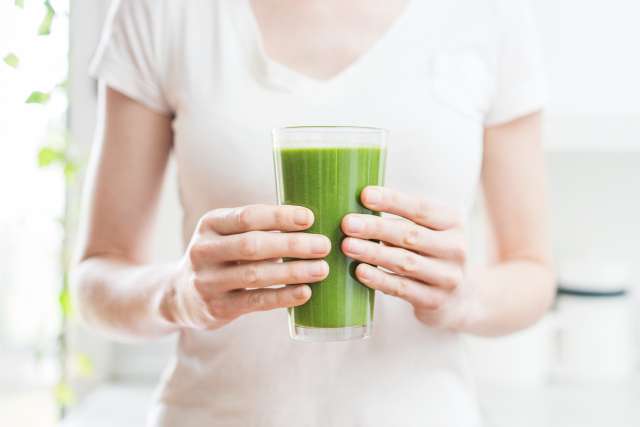A cleanse, or detoxification diet (“detox”), may sound enticing. Ridding the body of unwanted toxins sounds like a great idea. And if you can lose weight and gain health benefits in the process, even better.
But can a cleanse really help you achieve all of that? Here’s what you need to know:
What is a cleanse diet?
A cleanse diet involves eliminating certain foods, fasting or taking supplements to help your body shed unwanted toxins. “Toxins,” referring to poisonous substances, is often used as a catchall term. It refers to the pollutants and synthetic chemicals you're exposed to through your environment and diet — although there isn’t substantial evidence that cleanses help get rid of them. Certain claims also suggest that cleanses have health benefits and can help you lose weight.
Most detoxes and cleanses fall into one of three categories:
Liquid cleanse
Liquid cleanses limit your diet to juices, smoothies or soups — often prepackaged or made according to a specific recipe. While there’s no solid food on a liquid cleanse, some may include herbal supplements. The liquids in a cleanse are often primarily made from fruits and vegetables, though soups and smoothies may contain nuts or protein powder.
Drinking your meals may sound simple, but pay attention to these potential liquid cleanse pitfalls:
- Low calorie intake due to dietary restrictions
- Higher sugar intake, since many fruits and vegetables are high in natural sugar
- Unbalanced macronutrients if the cleanse is restrictive
Liver detox
Your liver naturally flushes toxins from your body. Liver cleanses aim to detoxify the liver and help it function better.
Liver cleanses typically involve over-the-counter products with specific ingredients, such as:
- Green tea, which may improve liver function
- Milk thistle, proven to have an anti-inflammatory effect on the liver
- Turmeric, which protects the liver from disease
While these ingredients individually do offer health benefits, there is no evidence that repeated liver cleanses are beneficial. Detoxing your liver cannot repair existing liver damage and does not offer balanced nutrition.
Colon cleanse
A colon cleanse uses laxatives and natural herbs to flush waste buildup. The hope is cleaning the colon will rid the digestive system of toxins and unhealthy bacteria.
Experts warn that overusing laxatives can be unsafe. There is also concern that cleaning the digestive system of bad bacteria may also flush the good bacteria, leaving you more vulnerable to gastrointestinal issues.
Are detoxes and cleanses safe?
According to the National Center for Complementary and Integrative Health, there’s very little research on the safety and effectiveness of dietary cleanses and detoxes. Any studies focused on the effects of commercial detoxes on humans tend to be small or flawed.
Experts agree that cleansing isn’t necessary because your body naturally removes toxins through:
- Bowel movements
- Liver function
- Sweat
- Urination
Many of the natural ingredients included in cleanses do have health benefits. But you can achieve those same effects by adding those ingredients to a healthy, whole-food diet.
Possible pros of cleanse diets
Feeling good after a cleanse is common, and you may even lose weight. That response makes sense because you’ve eaten limited calories and avoided processed foods, alcohol and unhealthy chemicals while on the cleanse.
Many of those immediate effects may decrease or disappear once you resume your usual diet. But there are positive effects that can come out of a cleanse, including:
- Adding vitamins and minerals to your diet: If the cleanse involves a lot of fruits and veggies — and you don’t typically eat much produce — you’ll benefit from the boost of vitamins and minerals.
- Breaking the habit of eating sugar and processed foods: Even a few days away from unhealthy food and sugar can help you instill better eating habits.
- Identifying food sensitivities: Eliminating certain foods from your diet can make you feel better if you have food sensitivities. After the cleanse, add foods back in one at a time to identify any possible sensitivities.
Possible cons of cleansing
Commercial detox diets and cleanses are not FDA-approved and may contain harmful ingredients. Cleanses are especially dangerous for certain people, including:
- Anyone who is malnourished
- Children and adolescents
- Older adults
- People with diabetes
- People who have, or have ever had, an eating disorder
- Pregnant or breastfeeding people
People who do participate in a cleanse or detox should be cautious of:
- Dehydration, especially if the cleanse involves fasting
- Nutrient deficiencies because many cleanses are not well-balanced
- Digestive distress, especially if your cleanse involves laxatives
5 tips for trying a detox diet
If you plan to try a cleanse, keep these guidelines in mind:
- Talk to your doctor first to make sure cleansing is safe for your health
- Avoid restrictive cleanses that only promote one food
- Only cleanse for a short period — no longer than a few days
- Hydrate properly, especially if you are doing a colon cleanse
- Be flexible and willing to eat if you feel faint or nauseous



